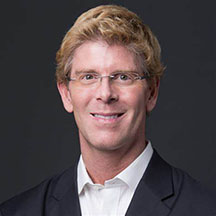On April 3, I reported the story of Texas scientist Eric Pianka, who allegedly argued in a speech that the only hope for the planet was for a mutated Ebola virus to exterminate 90% of the human population. Forrest Mims, who attended the speech, broke the story. Over the next few weeks, there was a media firestorm over the incident, and Mims was accused of misrepresenting Pianka’s speech. As a result, I received several emails telling me that I should retract the story. I did not, and I have no plans on doing so. I remain convinced that Mims basically got the story right.
The problem was that Pianka had asked that video cameras be turned off during his speech, and partial transcripts released later failed to fully corraborate Mims’ account. But, as Mims’ pointed out, the transcript lacked precisely the part of the speech with the offensive comments. In any event, Mims’ claim had several other corroborating pieces of evidence, which James Redford discusses in a blog posted entitled, “Forrest Mims Did Not Misrepresent Eric Pianka.” Cathy Young’s piece in the Boston Globe focused the issue properly: the point was not that Pianka had called for the active extermination of 90% of the population. It’s that he thought such an extermination by natural causes (like the Ebola virus) would be a “good thing.”
This story became especially irritating because many bloggers were more interested in the views of Forrest Mims than of Eric Pianka. Perhaps more troubling is that many commentators insisted that a respected scientist would never say that he looked forward to the deaths of billions of human beings. As a result, these commentators assigned Mims’ account a prior probability of about 0. This meant that virtually no evidence would be enough to confirm that Pianka had said more or less what Mims reported.
But anyone who reads widely in the environmental literature knows that suggestions such as Pianka’s are not uncommon. In fact, the desire for mass human death follows logically from the anti-human beliefs of some radical environmentalists. Some are more consistent in their beliefs than others. But Pianka is by no means the only person to express such opinions. Back in November, 2005, I reported on some personal correspondence from a prominent scientist, who expressed some Piankish views. He complained about “the devastation humans are currently imposing upon our planet” and then added:
Still, adding over seventy million new humans to the planet each year, the future looks pretty bleak to me. Surely, the Black Death was one of the best things that ever happened to Europe: elevating the worth of human labor, reducing environmental degradation, and, rather promptly, producing the Renaissance. From where I sit, Planet Earth could use another major human pandemic, and pronto!
 Since I didn’t post the letter, however, I received several skeptical inquiries. So, in light of the recent events surrounding Pianka, I have decided to post a PDF of the letter. Anyone who looks at this letter will notice that it did not come from some obscure researcher, but from a scientist who for many years held a significant position. I do not post this for the purpose of harming the individual who sent this letter. Rather, I am posting it in hopes that more people will recognize that profound misanthropy is afoot in the academic and scientific community, most of it officially motivated by a desire to save the planet. It is naive to continue acting as if this type of death wish is reserved for isolated crackpots. On the contrary, it is well on its way to being respectable opinion in some quarters–held by the well educated and the otherwise civilized–just as eugenics was respectable a century ago.
Since I didn’t post the letter, however, I received several skeptical inquiries. So, in light of the recent events surrounding Pianka, I have decided to post a PDF of the letter. Anyone who looks at this letter will notice that it did not come from some obscure researcher, but from a scientist who for many years held a significant position. I do not post this for the purpose of harming the individual who sent this letter. Rather, I am posting it in hopes that more people will recognize that profound misanthropy is afoot in the academic and scientific community, most of it officially motivated by a desire to save the planet. It is naive to continue acting as if this type of death wish is reserved for isolated crackpots. On the contrary, it is well on its way to being respectable opinion in some quarters–held by the well educated and the otherwise civilized–just as eugenics was respectable a century ago.

